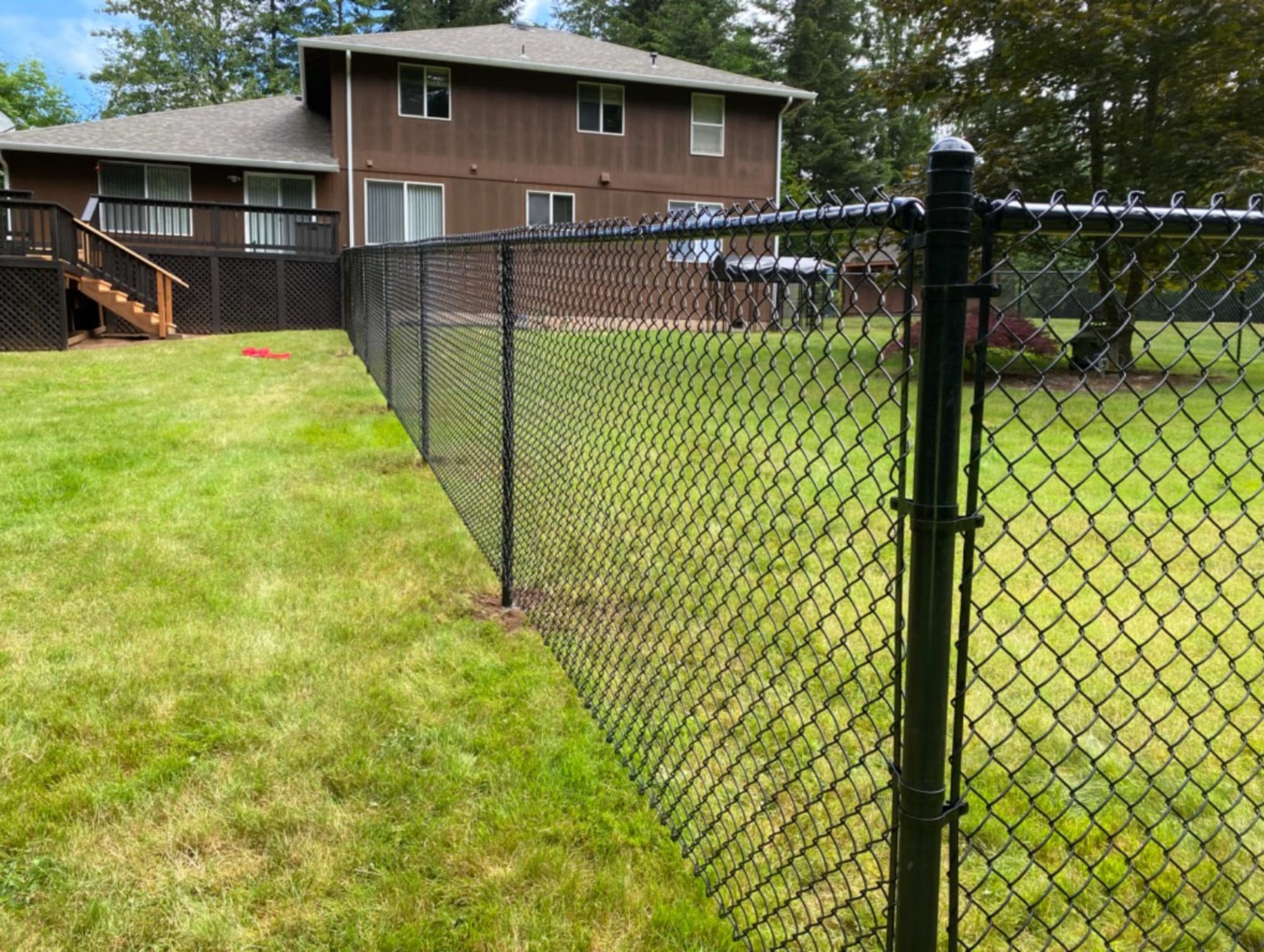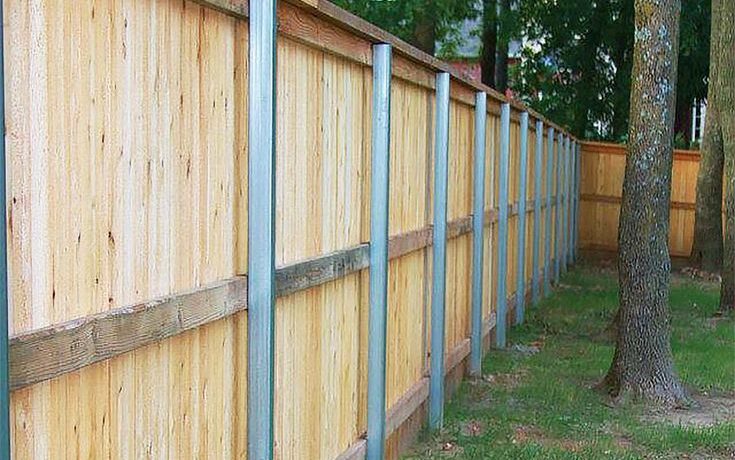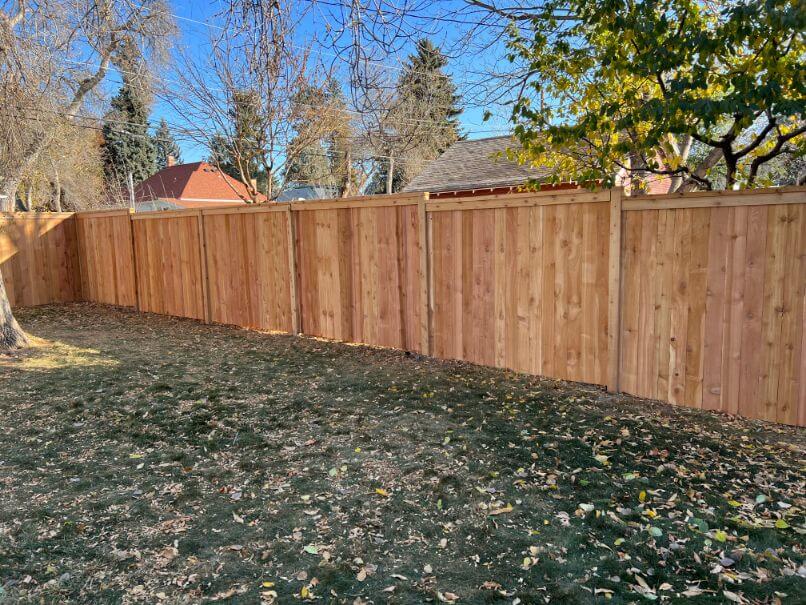All Categories
Featured
When you make a decision to mount a fencing around your residential home, it's necessary to recognize the permit demands particular to your location. Here's a detailed look at the authorizations you may need for fence installment.
Why Do You Need a License for Fence Installment? A fencing is even more than simply a barrier in between residential properties-- it can influence safety, residential property value, aesthetic appeals, and even environmental problems. Neighborhood governments call for permits to make certain that fences meet specific requirements and do not create issues for utilities, next-door neighbors, or the area all at once. Authorizations also make certain that the installation complies with zoning laws, constructing codes, and safety regulations.
![]()
Sorts Of Permits You May Need. Structure Authorization. A building license is one of the most common authorizations needed for fencing setup. If you're constructing a fence over a specific height (commonly over 6 feet), you'll likely need a building license.
Zoning License. A zoning authorization guarantees your fencing conforms with place, height, and trouble laws. Fences might require to be set back a specific distance from pathways, roads, or home lines to prevent obstruction or interference with utilities.
HOA Approval. You may require to seek authorization before mounting a fencing if your property is component of a homeowners association (HOA) HOAs typically have guidelines that govern the visual appeals and framework of fencings to guarantee they are in harmony with the area. You may need to send your prepare for approval, and the HOA might limit fencing height, product, or design.
Specialized Permits. In some locations, there might be extra authorizations needed for particular scenarios. If your fencing is near a safeguarded ecological area or located in a flood area, you might require to obtain specialty permits associated to ecological influence. In a similar way, if the fence remains in a location with below ground utilities, you might need to get clearance to avoid destructive pipes or wires.
![]()
Easement or Utility Business Consent. Before installing a fence, it's essential to examine whether the residential or commercial property includes an easement, such as an utility easement, which could influence where you can position your fencing. Easements are areas of land assigned for public or exclusive energies, and you might need authorization from the utility company or other authority to build within this location.
Exactly How to Figure Out What Allows You Need. To make certain that you're adhering to all the needed guidelines, below's how you can determine the specific licenses needed for your fence installation:
![]()
Browse Through Your City Government Office: The initial step is to get in touch with your local building or zoning department. Several cities and regions have standards offered online that define what types of permits are required for fencing setup. Otherwise, calling or going to the workplace personally can assist make clear the process. Examine Your City's Web site: Lots of towns supply details about fence installments and the authorizations called for via their official websites. Some websites even allow you to submit applications online. Seek Advice From a Fence Setup Expert: If you're uncertain about regional policies, an expert fencing service provider can aid. They are acquainted with the allowing process and can lead you through the actions. The Repercussions of Not Obtaining a License. Falling short to safeguard the essential authorizations before installing a fencing can cause significant consequences. As an example, you may be fined or needed to remove the fencing completely. In addition, if you choose to market your building in the future, the lack of an authorization could prevent prospective customers, as they might see it as a sign that the building is not compliant with regional regulations. Guaranteeing that you have the proper licenses will save you time, cash, and migraines in the long run.
Conclusion. Setting up a fencing around your home can add both security and curb charm, but it is necessary to guarantee you're following the legal steps in the process. Researching the certain permit requirements for your area, including building licenses, zoning guidelines, HOA authorization, and utility consents, will help guarantee your fence setup goes efficiently. Making the effort to understand these demands currently can conserve you from expensive blunders and possible legal issues down the line.
Why Do You Need a License for Fence Installment? A fencing is even more than simply a barrier in between residential properties-- it can influence safety, residential property value, aesthetic appeals, and even environmental problems. Neighborhood governments call for permits to make certain that fences meet specific requirements and do not create issues for utilities, next-door neighbors, or the area all at once. Authorizations also make certain that the installation complies with zoning laws, constructing codes, and safety regulations.

Sorts Of Permits You May Need. Structure Authorization. A building license is one of the most common authorizations needed for fencing setup. If you're constructing a fence over a specific height (commonly over 6 feet), you'll likely need a building license.
Zoning License. A zoning authorization guarantees your fencing conforms with place, height, and trouble laws. Fences might require to be set back a specific distance from pathways, roads, or home lines to prevent obstruction or interference with utilities.
HOA Approval. You may require to seek authorization before mounting a fencing if your property is component of a homeowners association (HOA) HOAs typically have guidelines that govern the visual appeals and framework of fencings to guarantee they are in harmony with the area. You may need to send your prepare for approval, and the HOA might limit fencing height, product, or design.
Specialized Permits. In some locations, there might be extra authorizations needed for particular scenarios. If your fencing is near a safeguarded ecological area or located in a flood area, you might require to obtain specialty permits associated to ecological influence. In a similar way, if the fence remains in a location with below ground utilities, you might need to get clearance to avoid destructive pipes or wires.

Easement or Utility Business Consent. Before installing a fence, it's essential to examine whether the residential or commercial property includes an easement, such as an utility easement, which could influence where you can position your fencing. Easements are areas of land assigned for public or exclusive energies, and you might need authorization from the utility company or other authority to build within this location.
Exactly How to Figure Out What Allows You Need. To make certain that you're adhering to all the needed guidelines, below's how you can determine the specific licenses needed for your fence installation:

Browse Through Your City Government Office: The initial step is to get in touch with your local building or zoning department. Several cities and regions have standards offered online that define what types of permits are required for fencing setup. Otherwise, calling or going to the workplace personally can assist make clear the process. Examine Your City's Web site: Lots of towns supply details about fence installments and the authorizations called for via their official websites. Some websites even allow you to submit applications online. Seek Advice From a Fence Setup Expert: If you're uncertain about regional policies, an expert fencing service provider can aid. They are acquainted with the allowing process and can lead you through the actions. The Repercussions of Not Obtaining a License. Falling short to safeguard the essential authorizations before installing a fencing can cause significant consequences. As an example, you may be fined or needed to remove the fencing completely. In addition, if you choose to market your building in the future, the lack of an authorization could prevent prospective customers, as they might see it as a sign that the building is not compliant with regional regulations. Guaranteeing that you have the proper licenses will save you time, cash, and migraines in the long run.
Conclusion. Setting up a fencing around your home can add both security and curb charm, but it is necessary to guarantee you're following the legal steps in the process. Researching the certain permit requirements for your area, including building licenses, zoning guidelines, HOA authorization, and utility consents, will help guarantee your fence setup goes efficiently. Making the effort to understand these demands currently can conserve you from expensive blunders and possible legal issues down the line.
Latest Posts
Step Back in Time and Dine at Twenties Restaurant in Atlantic City
Published Dec 18, 24
1 min read
What Allows Are Needed for Setting Up a Fence My Area?
Published Dec 18, 24
0 min read
Professional Siding Installation and Repair in HD
Published Dec 18, 24
1 min read